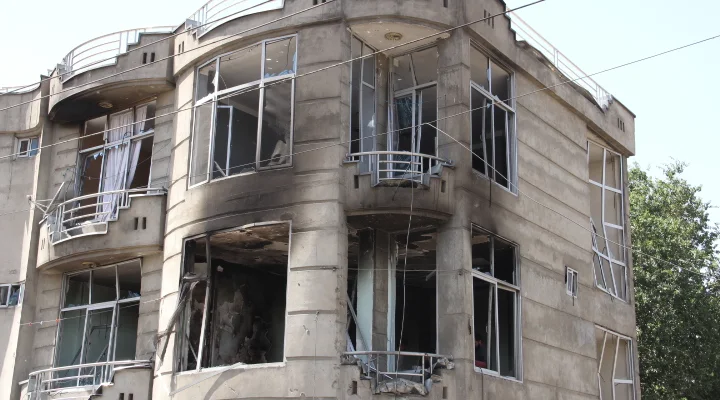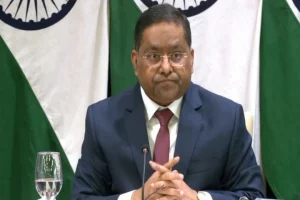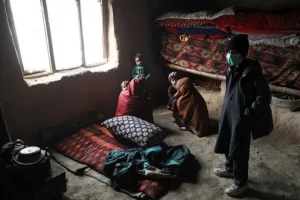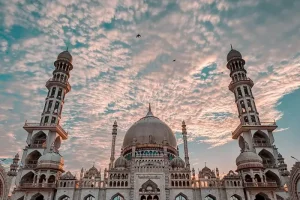India on Monday raised the "cowardly" Kabul gurdwara terror attack issue at a high-level meeting of the United Nations, saying that it is time that UN member states condemned hatred against non-Abrahamic religions and stop from being selective in combating religiophobias.
The Islamic State–Khorasan Province (ISKP) has claimed responsibility for the attack on Gurdwara Karte Parwan in Afghanistan capital on Saturday which killed two persons.
Speaking at a United Nations General Assembly (UNGA) informal High-Level Meeting to mark the commemoration of the first International Day for Countering Hate Speech on Monday, India's Permanent Representative to the UN T S Tirumurti highlighted that the rising trend in hate speech continues.
"On 18th June, a couple of days ago and on the very day we commemorated the International Day for countering hate speech, we saw yet another tragic example of this against Sikh religion, this time in Kabul, Afghanistan. The Gurdwara Karte Parwan was attacked, desecrated and damaged. We condemn in the strongest terms this cowardly, dastardly attack where lives were tragically lost," said Tirumurti.
"India has time and again emphasised that combating religiophobia can never succeed if it continues to be exclusionary and remains restricted to one or two religions only, while completely ignoring the rise in hatred and discrimination against non-Abrahamic religions including Buddhism, Hinduism and Sikhism," he added.
He emphasised that today, every one of the world's major religions has a home in India, making it a nation of unparalleled diversity. India has also, over centuries, provided refuge to all, whether Zoroastrians or the Jewish community or Tibetan Buddhists or many from the neighbourhood.
"It's time that UN members condemned hatred against non-Abrahamic religions as well and stop from being selective in combating religiophobias. We firmly believe that a society based on principles of democracy and pluralism provides an enabling environment for diverse religions and communities to live together," said the Ambassador.
Tirumurti stated that, through embracing both democracy and pluralism, India has promoted a culture of tolerance and respect for all religions and cultures – under its overarching constitutional framework.
"Aberrations are dealt with within our legal framework and we reject selective outrage from outside, especially when they are motivated and pursuing a divisive agenda just as we heard today references against India by OIC," he added.
Making it clear that India has continued to play a leading role to combat both radicalization and terrorism, he urged that the United Nations has the responsibility to ensure that countering hate speech and discrimination should not be limited to a select few but should encompass all those affected.
Meanwhile, Rina Amiri, the United States' Special Envoy for Afghan women, girls, and human rights, has also raised concerns about the escalating attacks against Hindus and Sikhs in Afghanistan.
"Deeply concerned about the escalating attacks against Afghanistan’s Hindus & Sikhs. Afghanistan’s rich diversity is its greatest treasure. A threat against one group is a threat to the identity of Afghanistan as a whole," Amiri tweeted earlier today.
Several United Nations officials and agencies, including the United Nations Assistance Mission in Afghanistan (UNAMA), have also strongly condemned the attack, calling for protection of all minorities in the country, including Sikhs, Hazaras and Sufis.
"Everyone has the right to live & worship in peace. I strongly condemn attacks on #Sikh & #Sufi communities in #Kabul & #Kunduz. Stopping systematic attacks on religious minorities in Afghanistan requires action including #documentation, #investigation and #accountability," tweeted Richard Bennett, the UN Special Rapporteur on the situation of human rights in Afghanistan




















